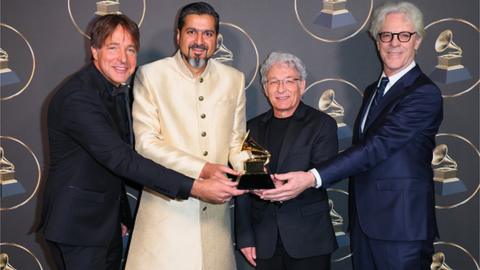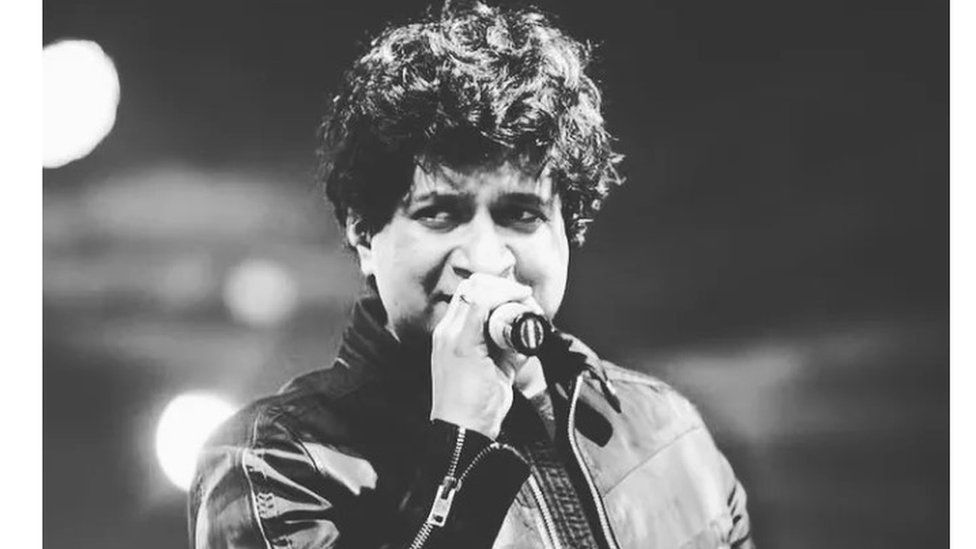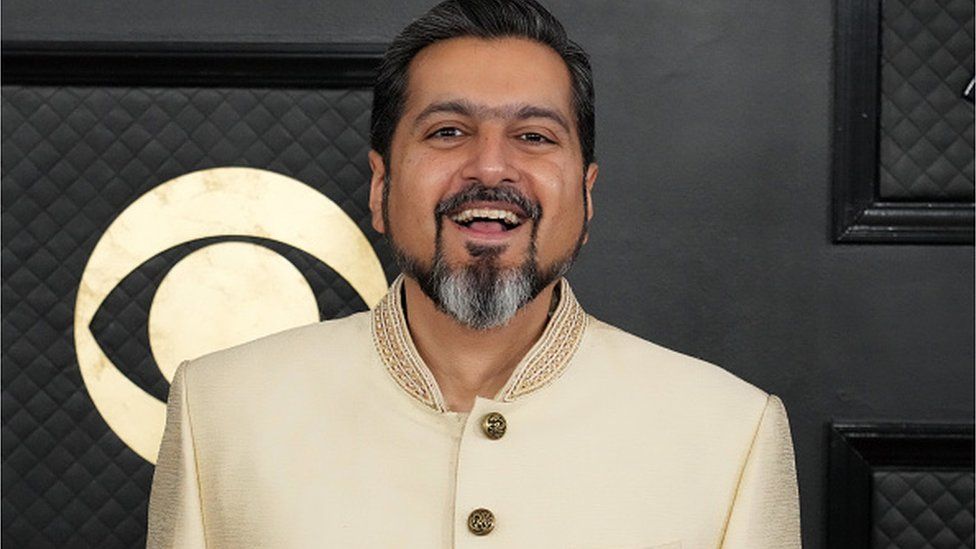
Earlier this month, musician Ricky Kej became the first Indian to win three Grammy awards. But despite global recognition, the musician is yet to find a large fanbase at home, the BBC’s Zoya Mateen reports.
Sharply dressed and sporting a salt-pepper beard with slick long hair, Kej has an air of glamour around him.
People who are familiar with him say he loves to party – and Kej agrees, he does. The 41-year-old also holds a degree in dentistry and is an environmentalist who has served as an ambassador for Unicef, Unesco and several other organisations.
But beyond his self-assured style and many talents – he’s a qualified dentist – Kej says he is actually just a musician who wants to spark positive impact with his work.
“Music and our environment have always been two pillars that have defined my life and after I won my first Grammy, I decided to dedicate my life and my music to the sole purpose of environmental consciousness by blending both these passions together,” he told the BBC.
In 2015, when Kej won his first Grammy for Winds of Samsara, he was already the youngest Indian to win the award. The album by Kej and South African flute player Wouter Kellerman had debuted at No. 1 on the US Billboard New Age Albums Chart a year before.
Six years later in 2022, Kej won his second Grammy for Divine Tides, a collaboration he did with The Police drummer Stewart Copeland. The album won in the The Best New Age Album category.
A year on, Divine Tides has once again managed to make it big at the awards, after it won in the Best New Age Album category, making Kej the first Indian to have won three Grammys. The album beat heavyweights like Christina Aguilera and The Chainsmokers and has earned the musician high-praise globally.
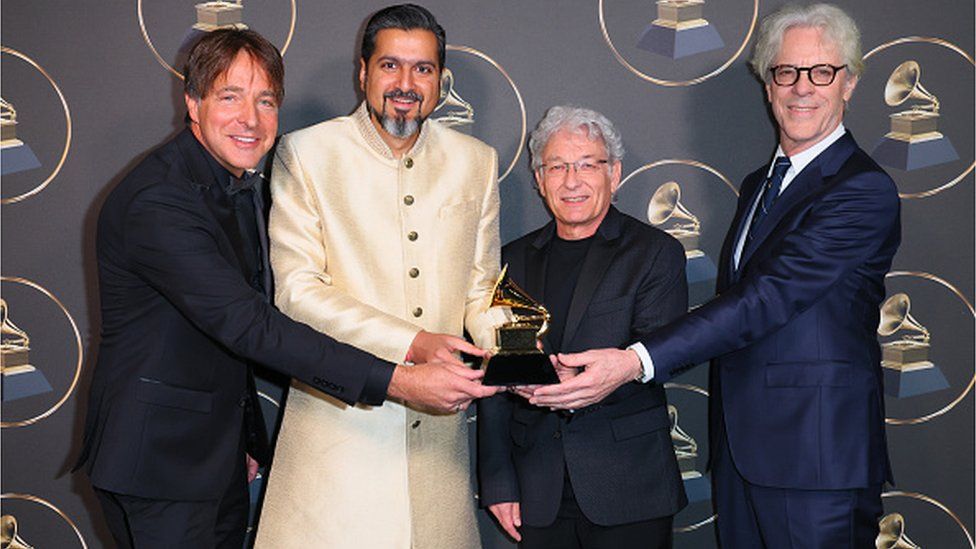
But despite being a well-known face in the global music industry, Kej and his music don’t spark much recognition in his home country.
It is an assessment the musician agrees with: “My music does have more Western consumers than Indian listeners although I do think the scales are slowly shifting over the last couple of years.”
He is popular with critics who marvel at his ability to reimagine Indian music. But some music lovers told the BBC that they had never heard of Kej or his work until he made headlines for his latest award.
Kej attributes this to Bollywood’s “vice-like group” on the Indian music industry.
“This is the main reason why I decided to base my career abroad and to release all of my music through Western labels as that was the only path to success that I saw,” he says.
Born in North Carolina to a family of doctors, Kej was eight when he moved back to the Indian city of Bangalore and has lived there since.
Kej believes he had always been a musician at heart, but his parent’s impressive record collection – “containing music from all kinds of genres, languages and cultures” – turned out to be a good way to coalesce that feeling into something serious.
“While all of my friends loved their video games, I used to put on these records, read the liner notes, figure out who all the musicians were on the record, learn about the instruments they use,” he says.
By the age of 20, Kej had decided to take up music seriously. The decision left his family furious, but Kej had made up his mind.
Two decades on, the musician, with an impressive oeuvre of work, has done hundreds of concerts and won millions of fans. His work also gave him a chance to work with his musical heroes such as Peter Gabriel, Senegalese legend Baaba Maal, and pop sensation Bruno Mars.
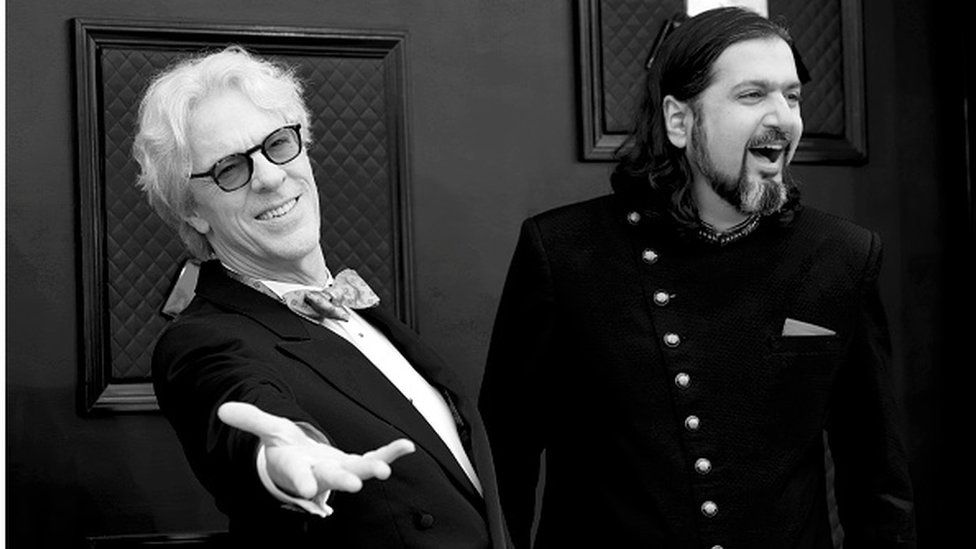
Kej’s work largely falls in the genre of ambient music, its spacey sounds perfect for relaxing after a long day. But for him personally, it’s a medium to reflect on the issues that plague our society.
“All the music I make is about protecting our environment, peaceful coexistence and to raise awareness about various social issues around the world such as the refugee crisis, land degradation, war, and conservation,” he says.
The musician also loves to experiment with visual imagery in his videos.
In Divine Tides, for instance, Kej takes you on a journey through India and beyond, literally. The album was shot in multiple locations ranging from Tamil Nadu and the Western Ghats in the south, several parts of north-east India, the Thar Desert in the west and even in Los Angeles and Spain.
One of the tracks, Himalayas, which is a tribute to the majestic mountain range, was filmed at an altitude of 12,000 feet. The songs are atmospheric and a breathy hum accompanies the camera as it floats and hovers above gorgeous landscapes.
Kej’s message is an important one: Nature can be awe-inspiringly beautiful, but its abundance and variety is finite and needs to be respected. The melodies are serenely expressive, the raga compositions melding with rhapsodic sitar and a cavernous reverb.
Though nature is Kej’s biggest muse and his music deeply rooted in classical Indian influences, he says he loves to discover new global sounds and incorporate these soundscapes in his music.
He has worked alongside Native American flute players, Tibetan Monks, Gaelic, Hebrew and South African Choirs, musicians from Turkey, Senegal, Azerbaijan, Koto players from Japan, “and so much more”.
“It is an extremely fulfilling experience to bring all these different cultures, traditions, and people together through the universal language of music,” he says.

For Kej the hybridism feels as natural as conversation – he sees no merit in keeping traditional and modern music separate.
But his grand project of making music cosmopolitan is not understood by everyone. Some Indian listeners say the find Kej’s template of fusion music a bit passé.
Others feel the music is “a bit too ambient”, perfect as background music for reading and studying but not engaging enough to listen to on repeat.
However, not everyone is sceptical – Kej’s approach to music has also found earnest appreciation.
“I really like his approach. He’s using his music as a tool for learning, especially educating kids. The lyrics talk about appreciating nature and making individual changes. And tunes are also very soothing,” says one listener.
For Kej, music is a personal passion and he says he would continue to “put my creativity to make this world better through my music”.
“But maybe my third Grammy win will help pull in a few more Indian listeners,” he says with a laugh.

